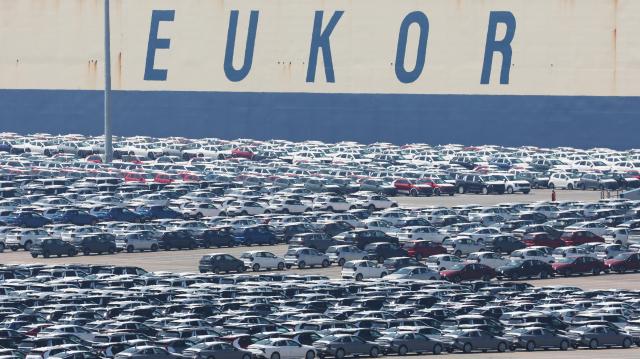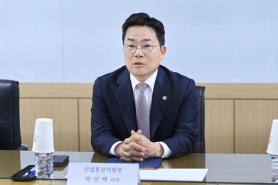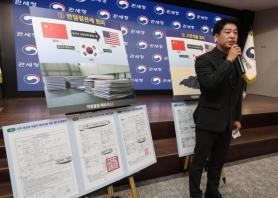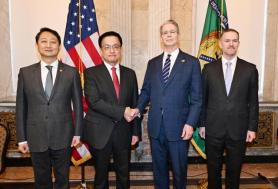
The Ministry of Trade, Industry and Energy has commissioned the Korea Institute for International Economic Policy to assess the economic ramifications of current discussions with Washington.
The talks have increasingly centered on non-tariff barriers and the goal of achieving more balanced trade.
The latest move follows a second round of technical consultations held in Washington from May 20 to 22.
For the first time in the ongoing talks, American negotiators raised concerns over non-tariff barriers affecting a range of sectors.
These included long-standing issues related to South Korean restrictions on beef and rice imports — topics highlighted in the U.S. Trade Representative’s annual National Trade Estimate report released in April.
The list of U.S. concerns also extends to market access limits on pet food containing ruminant ingredients, offset requirements in defense procurement, and regulatory obstacles for imported vehicles.
Additional topics reportedly include pharmaceutical pricing mechanisms and restrictions on Google’s precision mapping services in South Korea.
While the two sides have not yet entered into substantive negotiations on individual items, Seoul is conducting preliminary assessments under the Act on the Conclusion Procedure and Implementation of Commercial Treaties.
The law mandates economic feasibility evaluations and parliamentary briefings for trade deals that could materially affect the national economy.
“The United States may have put many issues on the table as part of negotiations, but given the compressed timeline and South Korea’s domestic circumstances, Washington is also aware that finalizing discussions in the short term will be difficult,” a South Korean government official said.
Negotiators face a July 8 deadline to wrap up discussions, but final decisions are widely expected to be deferred until after South Korea’s presidential election on June 3, leaving key choices in the hands of the next administration.
Copyright ⓒ Aju Press All rights reserved.




